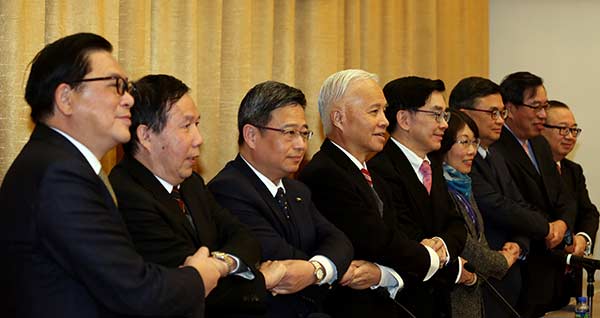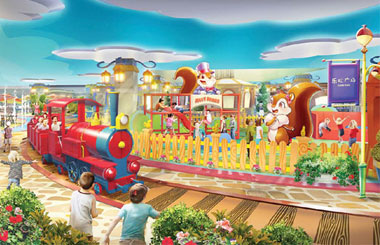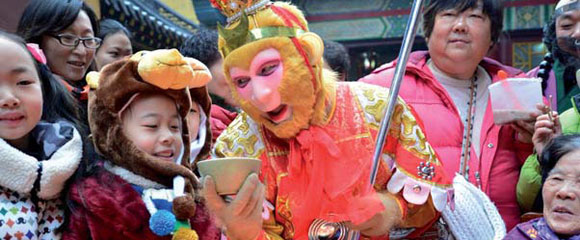Violence, legislative inaction harming HK, leaders say
Updated: 2016-02-20 09:06
By LUIS LIU(China Daily)
|
|||||||||||
 |
|
Representatives of six major business chambers urge the public to speak out against filibuster in the legislature and violent acts at a media briefing in the building of the Chinese General Chamber of Commerce in Hong Kong on Friday. PARKER ZHENG/CHINA DAILY |
The escalating violence on Hong Kong's streets and filibustering in the legislature are bringing Hong Kong to a standstill and will destroy its competitiveness, city business leaders and political heavyweights cautioned.
They urged everyone to return to rational discussion.
Six major business chambers in Hong Kong joined for the first time in expressing concern on the street violence and the ongoing delay of discussions in the Legislative Council initiated by the pan-democratic camp.
Betty Yuen So Siu-mai, vice-chairwoman of the Chinese General Chamber of Commerce, said a series of incidents, from the 79-day illegal "Occupy" movement in 2014 to last week's Mong Kok riot, have greatly harmed Hong Kong's international image and investors' confidence.
Local and overseas investors might reconsider their investment plans in the special administrative region out of fear of unpredictable social instability, Yuen said.
Daniel Cheng Man-chung, chairman of the Federation of Hong Kong Industries, hoped all citizens would calm down and reason things out through dialogue.
He suggested an open televised debate on certain social issues.
On Feb 8, hundreds of protesters clashed with the police in Mong Kok, the most serious violence Hong Kong had seen in decades.
About 130 people, including 90 police officers, were injured. About 70 people have been arrested.
Meanwhile, filibustering in the Legislative Council has halted the progress of Hong Kong's infrastructure construction, said Eddy Li Sau-hung, president of the Chinese Manufacturers' Association of Hong Kong. As competition from countries and territories in the region heats up, Hong Kong could lose its advantages, he warned.
Suffering from the domestic political wrangling and international economic downturn, the SAR's imports and exports have both declined, for the first time since 2009. If new growth engines cannot be sorted out, the economic gains of the past years could have been in vain, Li said.
One of the pillar engines is infrastructure construction, he said.
According to the Legislative Council, only two of 72 public works projects-worth HK$67.5 billion ($8.68 billion)-submitted to the council this legislative year have been passed. The others, including the high-speed rail project, were delayed.
Also on Friday, Secretary for Security Lai Tung-kwok condemned the Mong Kok riot, naming it the "most serious challenge" to Hong Kong's rule of law and public order since the reunion with the mainland.
He urged all Hong Kong people to reflect on the incident and speak up to help stop violence and radicalization.
In response to the riot, the police force established a review committee to enhance the safety and professional competency of police officers in execution of their duties. The committee held its first meeting on Friday.
Legislator Jeffrey Lam Kin-fung urged all people to stop radical acts and protect Hong Kong's peace and stability.
Related Stories
Hong Kong banks prepare for gloomier prospects 2016-02-17 08:23
Financial technology has a bright future in Hong Kong 2016-02-16 09:53
China refutes British latest six-monthly report on Hong Kong 2016-02-13 00:36
64 now in jail after Hong Kong riot 2016-02-12 08:13
Hong Kong overnight riot injures at least 48 police officers 2016-02-09 11:42
Hong Kong holds parade to celebrate Chinese Lunar New Year 2016-02-09 09:43
Today's Top News
US saber-rattling could spark arms buildup: experts
Balkan, Austria police agree to register refugees
Turkey blames Kurds, Syria for attack
Stronger united Europe is 'in the interests of China'
Huawei to increase co-op with European partners
Turkey's Erdogan to fight forces behind bombing
Aston Martin to develop electric car with LeEco
Huawei bids to become 'Internet of Things' platform
Hot Topics
Lunar probe , China growth forecasts, Emission rules get tougher, China seen through 'colored lens', International board,
Editor's Picks

|

|

|

|

|

|






